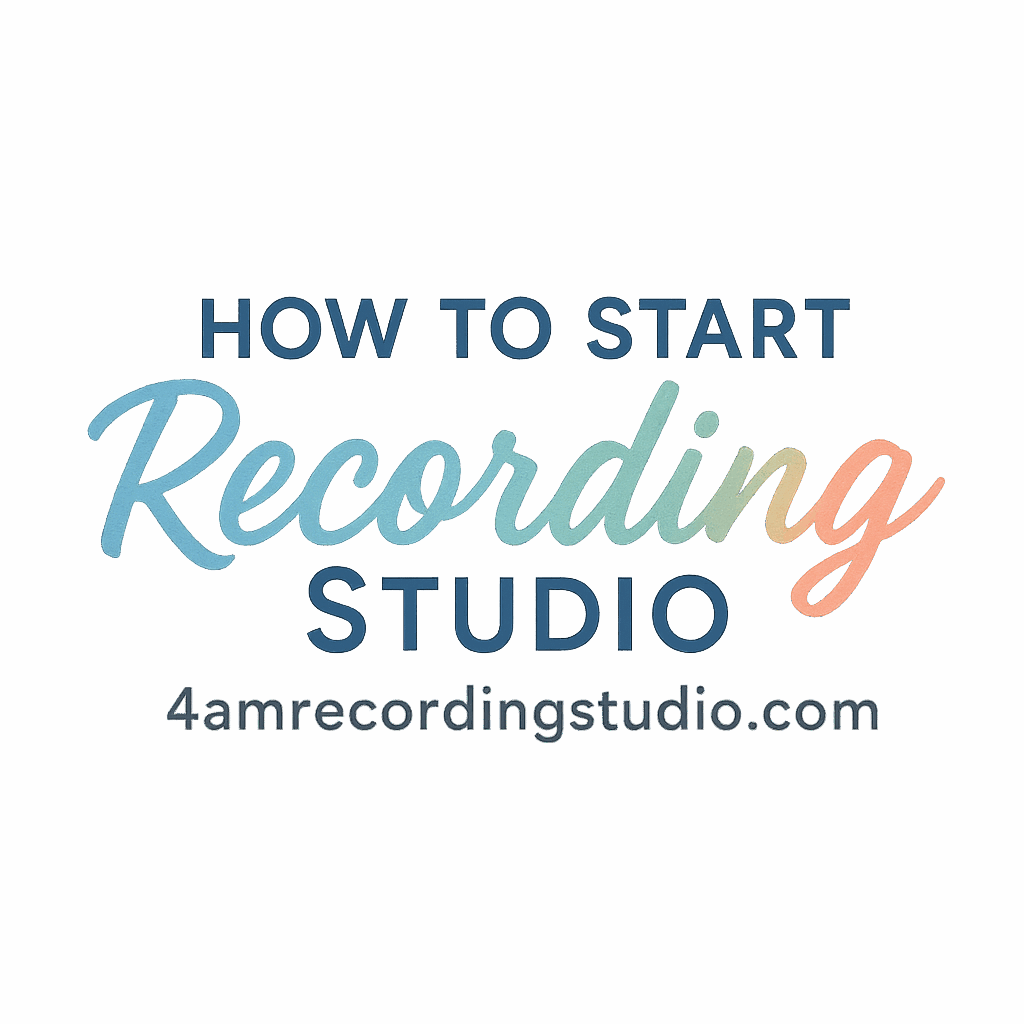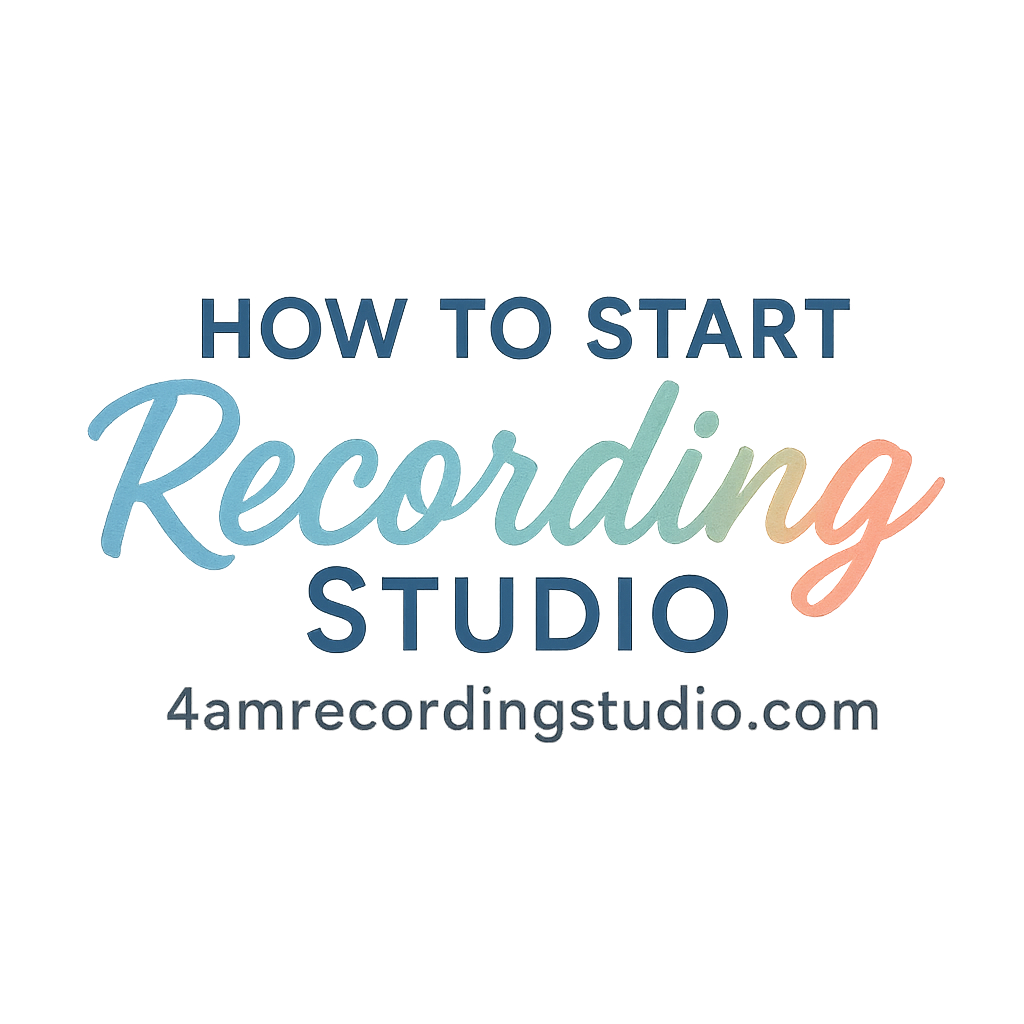So, you’ve got an amazing recording studio, top-tier gear, and unbeatable vibes—but if no one can find you online, does it even matter? In today’s digital world, SEO (Search Engine Optimization) is your studio’s best friend. It’s how you climb Google’s ranks, attract musicians, and keep that booking calendar full.
Whether you’re just getting started or looking to grow your client base, this guide will give you 8 killer recording studio SEO tips that will help you rank higher, get discovered, and dominate online.
1. Understand Why SEO Matters for Your Studio
What is SEO, and Why Should You Care?
SEO is short for Search Engine Optimization. In plain English, it’s all about making your website easier to find on Google and other search engines. When someone types “recording studio near me” or “affordable music studio in [your city],” you want to be the first thing they see, right?
Without SEO, you’re basically hiding in plain sight. You’re missing out on potential clients who are actively looking for the services you offer.
How SEO Drives Traffic and Clients
Organic search traffic (aka people finding you on Google) is often the highest-converting type of traffic. Unlike paid ads, it’s free and continues to work over time. By optimizing your site, you’re planting seeds that will grow your visibility for months—or even years.
If you’re serious about studio growth, check out our deep-dive into Recording Studio Business Planning.
2. Target the Right Keywords (Including Local Keywords)
Keyword Research for Studios
Choosing the right keywords is like tuning your guitar—if you get it wrong, everything sounds off. You want to focus on what your ideal client is typing into Google.
Here are some sample focus keywords for a studio:
- Recording studio in [your city]
- Affordable studio time for indie artists
- Mixing and mastering services
Use tools like Ubersuggest, Google Keyword Planner, or SEMrush to research what people are searching for.
Tools You Can Use
- Ubersuggest: Great for beginners.
- Google Search Console: Perfect for tracking performance.
- Answer The Public: Awesome for finding what people ask online.
Local SEO is Your Secret Weapon
If you’re based in Chicago, someone searching “recording studio Chicago” is a hot lead. Make sure to:
- Include your location in your titles and meta descriptions.
- Create location-based landing pages.
- Get listed on local directories like Yelp or YellowPages.
Also, don’t forget to tag your content with location-focused tags for maximum exposure.
3. Optimize Your Website Structure
Make Navigation Simple
Think of your website like your studio layout. If it’s cluttered or confusing, no one’s sticking around. Use clear menu items like:
- Services
- Book a Session
- Portfolio
- Blog
- Contact
Also, include clear CTAs (calls to action) on every page.
Mobile-Friendly and Fast Loading Pages
Most artists and producers are searching on their phones, not desktops. So if your site isn’t mobile-friendly, you’re losing half your audience.
Use tools like Google’s PageSpeed Insights to improve your site speed. Want help with setup? Check our Recording Studio Setup Basics guide.
4. Create High-Quality Blog Content
Blog Ideas That Bring in Clients
Blogging isn’t just for influencers. For studios, it’s a chance to show authority, provide value, and drive traffic.
Blog topic ideas:
- “How to Prepare for Your First Studio Session”
- “Best Microphones for Home Recording”
- “Why Hiring a Mixing Engineer is Worth It”
Each blog should target a specific keyword, answer a real question, and link internally to your site pages like recording studio equipment.
Think Like a Musician, Not Just a Studio Owner
Write the way your clients talk. They’re searching for answers, not a textbook. Keep it real, keep it helpful, and they’ll keep coming back.
Want more growth strategies? Check out Recording Studio Management & Growth.
5. Use On-Page SEO Techniques
Title Tags, Meta Descriptions, and Headers
These are the first things Google (and your audience) sees.
Quick tips:
- Keep titles under 60 characters
- Use primary keywords in H1 and H2 tags
- Write compelling meta descriptions (under 160 characters)
Image Optimization for Studio Websites
Every image should:
- Have descriptive file names (e.g., “vocal-booth-studio-a.jpg”)
- Include alt text with your focus keyword
- Be compressed for faster loading
Include photos of your gear, sessions, and team. Tag them appropriately using relevant tags like music gear and instruments.
6. Get Backlinks from Relevant Sources
Partner with Local Musicians and Blogs
Google sees backlinks (links from other websites to yours) as a vote of confidence. The more you have from legit sources, the higher you’ll rank.
Ways to earn backlinks:
- Collaborate with local artists
- Get featured in local blogs
- Write guest posts on music websites
Use Collaboration to Build Authority
Hosting events, sponsoring local music nights, or doing podcast interviews is great for visibility—and backlinks.
Want to build real-world relationships? Tap into our insights on collaboration strategies.
7. Leverage Google Business Profile & Maps
Why Google Business is Essential for Local SEO
Your Google Business Profile is often the first thing people see when searching for a studio. It displays your location, reviews, services, hours, and more.
Tips for Optimizing Your Google Listing
- Use accurate business name, address, and phone number
- Add photos of your studio space
- Encourage clients to leave reviews
- Post regular updates or promotions
Also include keywords in your descriptions like “professional recording studio” or “music production in [your city].”
8. Track and Improve with SEO Tools
Use Analytics to Understand What’s Working
You can’t improve what you don’t measure. Use tools like:
- Google Analytics: Tracks website visitors
- Google Search Console: Tracks search performance
- Hotjar: Tracks how users behave on your site
SEO is Ongoing – Keep Testing
SEO is a marathon, not a sprint. Algorithms change, and so do search behaviors. Make monthly updates, refresh old posts, and stay consistent.
Need help staying organized? Browse our guides on management and scheduling your studio’s marketing efforts.
Final Thoughts: Be Patient and Consistent
SEO isn’t magic—it’s strategy. These 8 recording studio SEO tips will help you get noticed, grow your traffic, and attract more clients. But don’t expect overnight success. Stay consistent, keep refining, and watch your studio rise in the rankings.
Also, don’t forget to explore more pro insights at 4amrecordingstudio.com.
FAQs
1. How long does it take to see SEO results for a recording studio?
Usually 3–6 months, depending on your competition and how consistent your efforts are.
2. What’s the best free tool for beginner SEO?
Google Search Console is free, powerful, and perfect for beginners.
3. Should I blog even if I’m not a writer?
Yes! Even simple, helpful posts can bring major SEO benefits. Or hire a content writer.
4. How often should I update my studio website?
At least monthly. Keep things fresh—Google loves active websites.
5. How important are internal links?
Super important! They help Google understand your site structure and keep users engaged longer. (Hint: Like we did in this post.)
6. Should I focus on mobile SEO?
Absolutely. Most users are on their phones. Make sure your site is responsive and fast.
7. Do reviews help SEO?
Yes! Google uses reviews as a ranking factor, especially for local searches. Ask happy clients to leave feedback.

